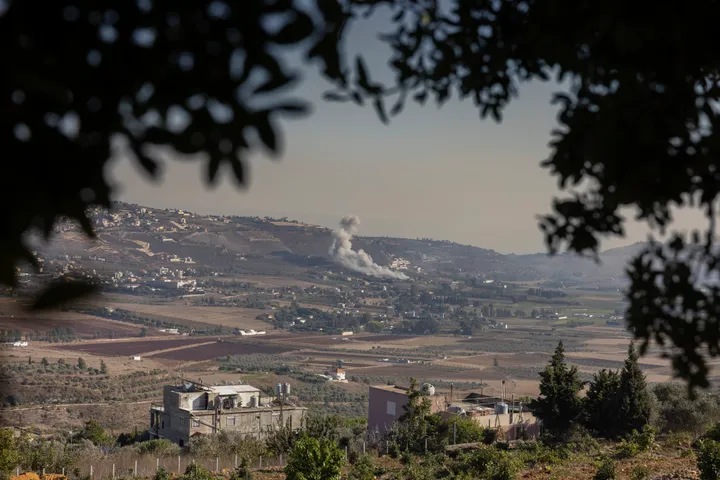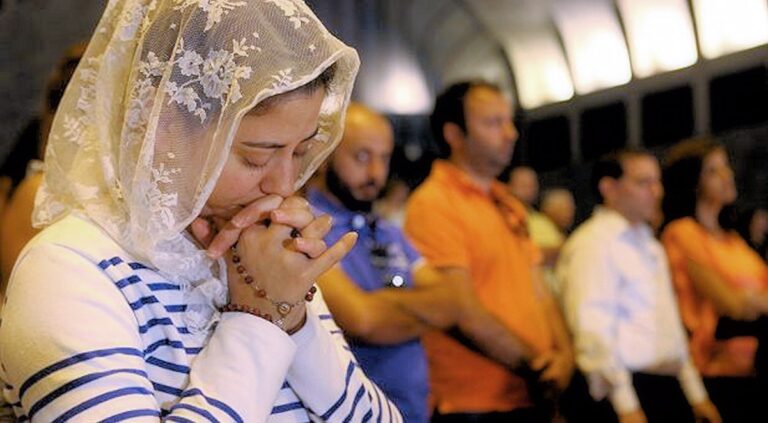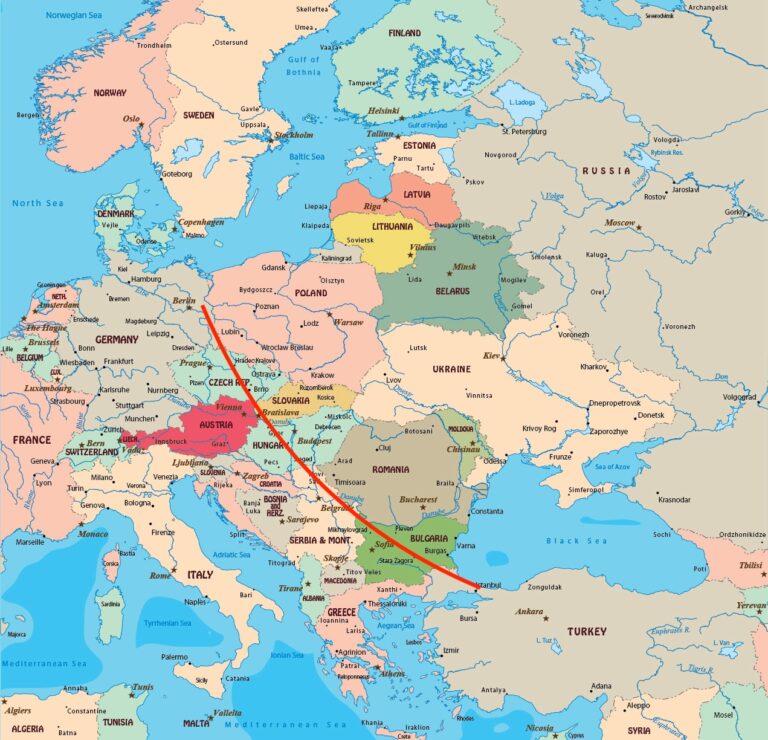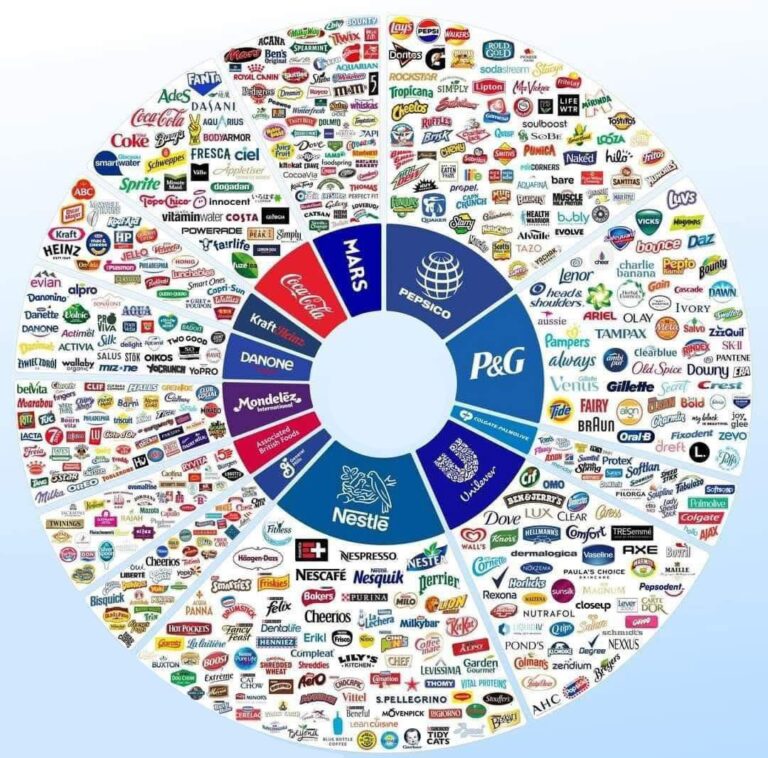By Andrea Tucci,
When the situation grew desperate, they sought refuge in the church. War had surrounded them, and now the 100 remaining residents of Qlayaa, a Christian village in southern Lebanon near the Israeli border, were waiting for Pierre Raï, the priest.
Father Pierre spoke to the gathered crowd: “One year ago, we decided together that we would stay when the war came. Now, Israel has ordered us to leave our homes. But we won’t go. We don’t want to leave, but we are afraid to stay…” He continued: “We have no weapons. We do not support any military groups aside from the legitimate Lebanese army! We will not abandon the land of our ancestors! If Hezbollah fires rockets at Israel from our territory, it will answer to God for the misfortune that follows. But there is no reason for Israel to drive us away.”
The residents of three villages—Qlayaa, Rmaych, and Marjayoun, all located just a few kilometers from the Blue Line—were unpleasantly surprised on October 4 to find their villages listed among 27 localities in southern Lebanon ordered to be evacuated by the Israeli Army. The previous evening, Tel Aviv had announced the start of “limited, localized, and targeted” ground operations, supported by air and artillery strikes, against Hezbollah positions in southern Lebanon.
Until recently, during the 11 months of limited cross-border shelling between Israel and Hezbollah, the Christian villages had been protected by their neutrality. However, by early October, the threat had come closer. Israeli military lists now included Qlayaa among villages set to be evacuated, with a Facebook post warning residents to leave immediately.
Why does Israel want to force the Christians out? The Vatican is getting involved, and the Maronite patriarch is attempting to mediate. Since early October, Israeli ground troops, held off for a few days by Hezbollah fighters, have begun advancing into Lebanon from various directions, moving through largely empty terrain. They are still two or three kilometers from the villages’ edge. Since Thursday, Israeli tanks have fired on UN peacekeeping force (UNIFIL) headquarters and positions, injuring 20 soldiers, as confirmed by the United Nations.
The fact that only Christians hear the nearby fighting is simple: no one else remains. Apart from Hezbollah fighters hidden in tunnels and shelters, evading Israeli drones overhead, the Shiite villages under Hezbollah’s control have been mostly evacuated.
In some villages, people have quickly organized to survive the crisis, fearing it may drag on. Young people help the elderly, meeting their needs, while families share food and essentials. Women manage resources, and men protect their villages.
In Marjayoun, many have chosen to leave, fearing an escalation. Feelings of isolation have grown, worsened by the closure of hospitals and pharmacies, and the destruction of the road connecting Hasbaya to Marjayoun, bombed three times by the Israeli Army. This has heightened anxiety among a population left to fend for itself.
A shortage of diesel and gasoline limits movement and increases isolation, especially as bombings have severely disrupted internet access. Telecommunications infrastructure has suffered significant damage, making connectivity unreliable or nonexistent.

The Israeli defence forces attacking the village of Khiam in Southern Lebanon
Yet, the most urgent concern is the rising threat of food insecurity, as movement restrictions complicate supply chains.
Recently, trucks carrying aid, including essential goods, have arrived thanks to coordinated efforts by the Ministry of Social Affairs, local and international organizations, the Lebanese Army, and UNIFIL.
Several thousand people remain in their isolated towns and villages: around 4,000 Maronites in Rmaych, 160 in Debel in central southern Lebanon, 1,500 Maronites in Qlayaa, and perhaps 1,000 Greek Orthodox in Marjayoun to the east. The rest of southern Lebanon is a landscape of half-destroyed towns and emptiness.
In the valley below, between Hezbollah villages, olive groves have been burning for days. No one dares put out the fires; it’s too dangerous to venture beyond the Christian villages’ protective boundaries.
Political negotiations in Washington and Jerusalem have revealed that the Israeli and U.S. governments have told Hezbollah that UN Security Council Resolution 1701, which called for Hezbollah’s withdrawal beyond the Litani River, is no longer the basis for negotiations. Instead, the stricter Resolution 1559, demanding Hezbollah’s complete disarmament, now governs the talks.
In the evening, in the Christian village of Qlayaa, Mass is held, and voices rise in song: “We call on You, Almighty God, save us, save us from the angel of death.”



